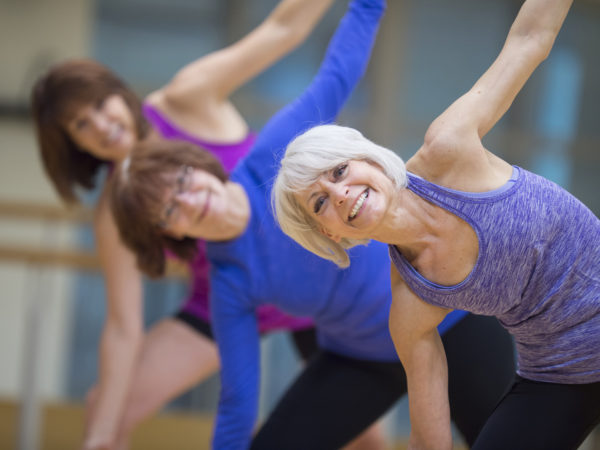Weight Control Worries?
At 62, I’m pretty active (play tennis, jog, work with a trainer once a week), but I’m still battling a tendency to gain weight. Any advice?
Andrew Weil, M.D. | November 1, 2005

We’re all so obsessed with weight control these days that sometimes it’s easy to lose sight of the realities of weight and health. Of greatest concern is morbid obesity – being more than 100 pounds over your “normal” or “ideal” weight. There’s no doubt that being this heavy increases the risk of cardiovascular disease, type 2 diabetes and osteoarthritis, all of which can lead to premature disability and death. But what about being just ordinarily overweight?
I discuss the subject of weight in detail in my new book, Healthy Aging. The latest research suggests that excess weight is unhealthy when you’re young but may not be when you’re old. Also, if you’re somewhat overweight in middle age, you may enjoy a healthier and longer old age than those who are too lean. If you’re getting the amount of exercise you describe, you’re probably fit. It’s my belief that it is better to be fit and fat than lean and not fit. Instead of worrying that you’re a few pounds over your ideal weight as defined by actuarial tables, concentrate on maintaining optimum health by eating right and keeping physically active.
Being ultra-lean like some athletes correlates with better cardiovascular health and a very low risk of type 2 diabetes but may actually raise risks associated with other illnesses. For example, those with very low body fat may be at higher risk of death from acute infectious diseases that can cause rapid weight loss – pneumonia and influenza, for example. Also, ultra-leanness correlates with increased risk of ALS (amyotrophic lateral sclerosis) and other neurodegenerative diseases.
Tennis, jogging and working with a trainer add up to appropriate aerobic and strength training for someone of any age. I would suggest that you include flexibility and balance training, which are essential as we get older, because they reduce susceptibility to falls. Yoga is great for flexibility. Your trainer may recommend using balance boards or inflatable exercise boards to improve your balance. Or you could try tai chi, a safe and effective form of balance training that looks deceptively simple but requires regular practice.
Andrew Weil, M.D.










